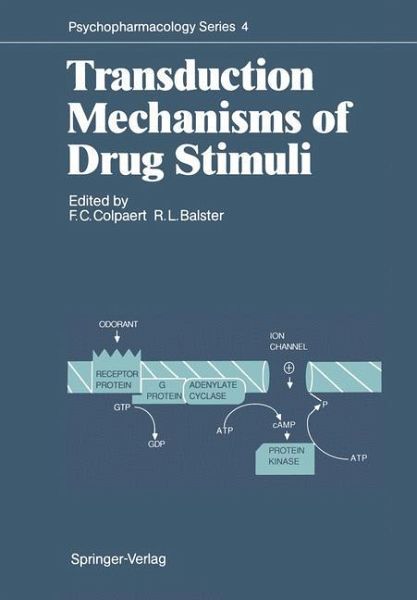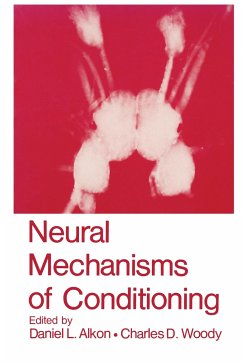
Transduction Mechanisms of Drug Stimuli
Versandkostenfrei!
Versandfertig in 1-2 Wochen
77,99 €
inkl. MwSt.

PAYBACK Punkte
39 °P sammeln!
In this book the latest data available on transduction mechanisms of drug stimuli are presented. A common theme underlying the chapter in this volume is the recognition that drugs can act as stimuli, in much the same manner as external events do. Accordingly, the papers focus on the mechanisms by which these stimuli are transduced at different levels of analysis, such as the behavioral, pharmacological, and molecular levels. Some chapters discuss the mechanisms of transduction of the discriminative effects of several important classes of drugs, while others deal with the methods and research s...
In this book the latest data available on transduction mechanisms of drug stimuli are presented. A common theme underlying the chapter in this volume is the recognition that drugs can act as stimuli, in much the same manner as external events do. Accordingly, the papers focus on the mechanisms by which these stimuli are transduced at different levels of analysis, such as the behavioral, pharmacological, and molecular levels. Some chapters discuss the mechanisms of transduction of the discriminative effects of several important classes of drugs, while others deal with the methods and research strategies by which these mechanisms can be analyzed. Collectively, the papers in this volume reflect the current status of knowledge in the rapidly expanding field of behavioral pharmacology.














